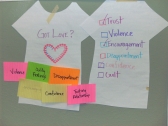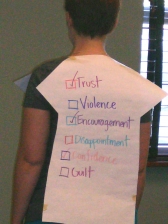Our Approach
i2i Institute understands that our clients operate in complex environments. We take that complexity into careful account in each phase of our evaluation.
We believe that multi-method approaches to research and evaluation provide the richest and most reliable data, leading to deeper understanding of systems effects and changes, and ultimately to more effective change initiatives.
We use contextually appropriate, rigorous methods that are inclusive and culturally responsive. Our team has expertise in a broad range of approaches—quantitative and qualitative, traditional and innovative—that enable us to add meaning and value. When necessary we augment our services with subject matter experts, editors, designers, and other professionals. We expertly manage budget and time parameters to deliver a final product that exceeds clients’ expectations.
Above all, our work is highly collaborative and integrated; through working in partnership with our clients we ensure that our work addresses their needs and the needs of the communities they serve.
Our Services
Evaluation can happen at any point in the life of a project, program, or organization. At i2i, we ask the right questions and listen carefully to clients to recommend how evaluation can best support their evolution.
For clients working on emerging initiatives in complex environments, we help them innovate, understand the change their work is creating, and incorporate new learning in real time.
For clients concluding a project or program, we help them evaluate its impact, reflect on successes and challenges, and determine the path forward.
For clients launching a new effort, we assess needs, conditions, and opportunities, and we help design programs that embed evaluation into everyday activities.
Below you'll find a menu of the various services we offer.
- RESEARCH DESIGN AND EVALUATION: Capturing the Full Picture
-
- Elicit and organize community support through meetings, presentations, newsletters, and other means
- Collaborate with stakeholders on data collection tools and methods
- Analyze and synthesize based on quantitative and qualitative data, considering internal and external factors
- Generate insights that help inform planning and communication
-
PLANNING AND TRAINING: Sustaining Results
- Create tools to track and evaluate impact at all phases of a program or project
- Train staff to integrate evaluation techniques as a seamless part of program activities
- Develop mechanisms that rapidly channel feedback into decision-making processes
-
COMMUNICATION STRATEGIES:
- Listen and reflect to help clients understand program or organizational status and vision, as well as factors shaping new directions
- Help clients identify core messages for staff, board, constituents and others to use in external and internal materials


















.jpg)



